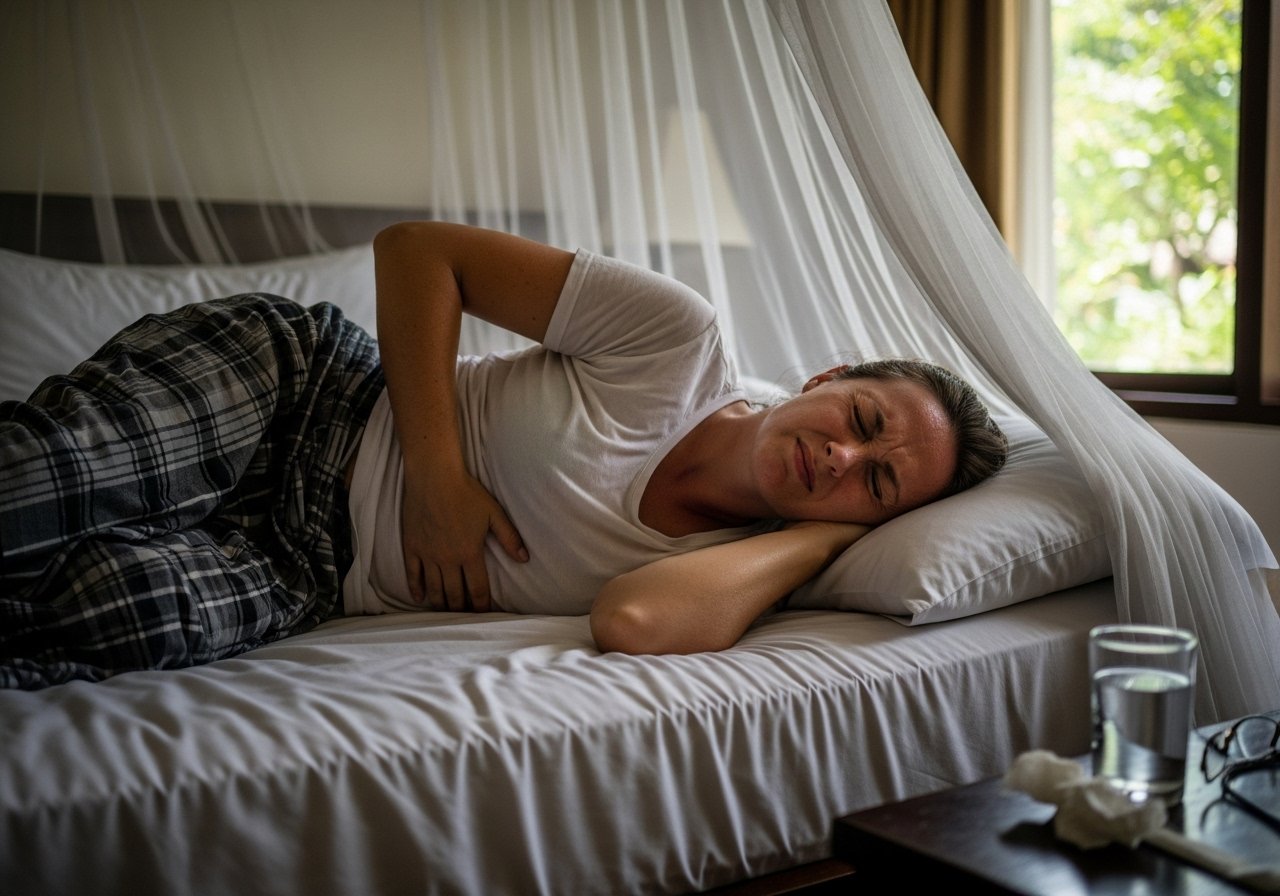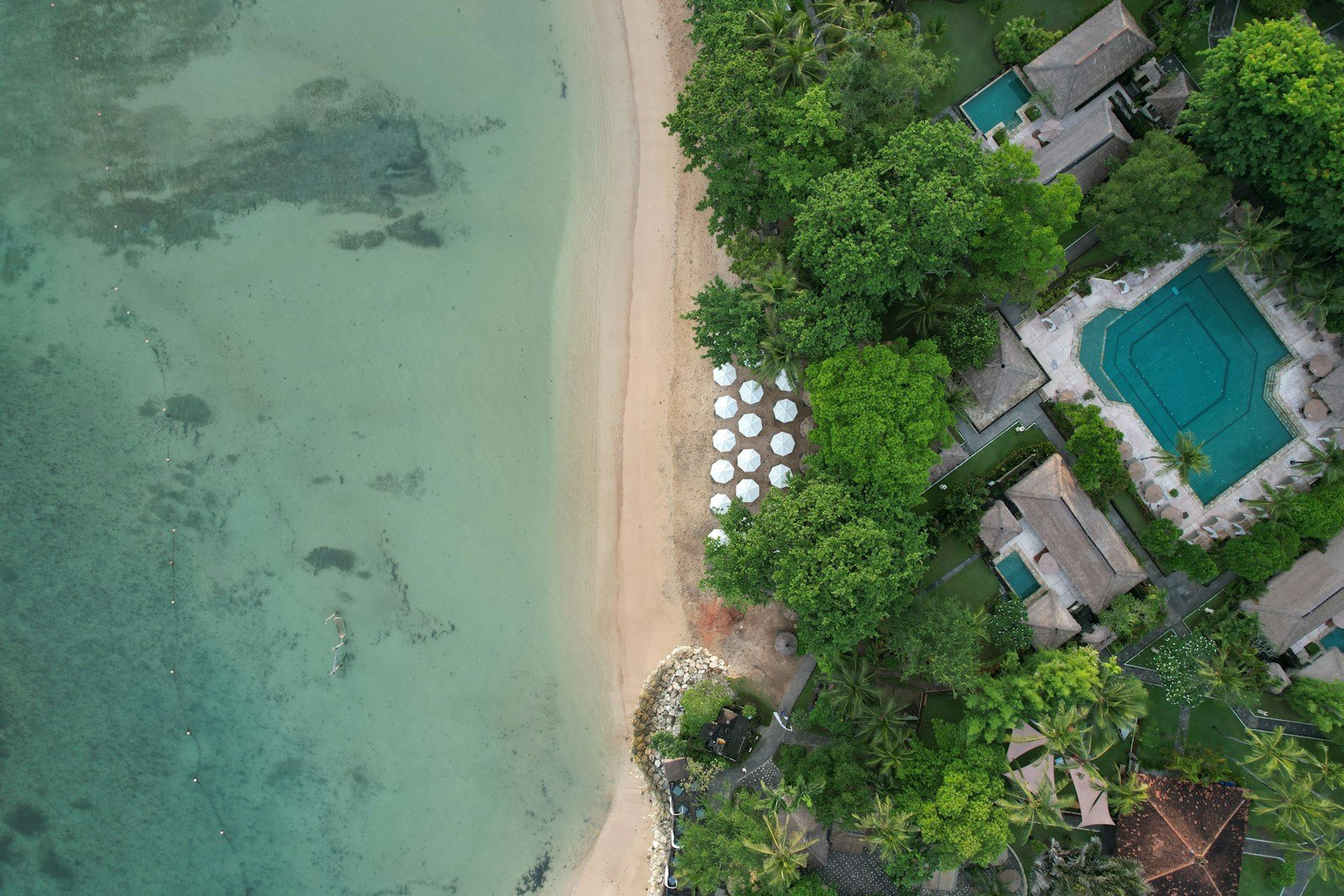Understanding Bali Belly: What It Is and Why Prevention Matters
Bali belly is a real risk for travelers, but it’s not an unavoidable fate. While approximately 30-50% of international visitors experience some form of traveler’s diarrhea in Bali, strategic preparation can dramatically reduce your chances of getting sick. This comprehensive guide will break down everything you need to know about avoiding this notorious travel challenge.
What Causes Bali Belly
Bali’s tropical environment creates a perfect storm for bacterial infections that can quickly derail your dream vacation. The primary culprits are microscopic menaces lurking in food and water sources that might seem innocent to the untrained eye.
Bacterial Battleground
- E. coli Warriors: These bacteria thrive in Bali’s warm climate, often found in:
- Street food preparation areas
- Unfiltered water sources
- Improperly washed produce
- Salmonella Scouts: Prevalent in:
- Undercooked meats
- Unpasteurized dairy products
- Raw seafood from local markets
💡 Pro Tip: The risk isn’t just about dirty restaurants. Even high-end establishments can harbor these bacterial threats due to Bali’s challenging hygiene infrastructure.
Bali-Specific Risk Factors
The island’s unique combination of factors makes bacterial transmission more likely:
- Tropical Heat: Accelerates bacterial growth
- Water Infrastructure: Limited reliable water treatment systems
- Local Food Preparation: Traditional cooking methods that might not meet Western sanitation standards
Can You Actually Avoid Bali Belly?
The short answer: Yes, with meticulous preparation. While complete prevention isn’t guaranteed, smart travelers can reduce their infection risk by over 70%.
Infection Statistics
| Traveler Type | Infection Probability (2025 Estimate) |
|---|---|
| Unprepared Traveler | 45-55% |
| Prepared Traveler | 15-25% |
Susceptibility Factors
Not all travelers are created equal. Your likelihood of infection depends on:
- Immune System Strength: Some people naturally resist bacterial invasions better
- Previous Travel Experience: Seasoned travelers often develop mild immunities
- Personal Hygiene Habits: Consistent hand washing and smart food choices matter immensely
💡 Pro Tip: Bring a comprehensive travel health kit. Include electrolyte powders, antibacterial medications, and water purification tools specific to tropical environments.
Is it possible to avoid Bali belly? Absolutely. Is it guaranteed? Not entirely. But with the right knowledge and preparation, you can dramatically minimize your risk and ensure your Bali adventure remains a dream, not a digestive nightmare.
Frequently Asked Questions About Bali Belly Prevention and Treatment
Q: Is it Possible to Avoid Bali Belly?
A: While completely avoiding Bali belly can be challenging, it is possible to significantly reduce your risk through careful precautions. The key is to be extremely mindful of your food and water intake, choosing only bottled or boiled water, and eating at reputable restaurants with good hygiene practices. Practice rigorous hand washing, avoid street food with questionable preparation methods, and consider taking preventative measures like probiotics before and during your trip.
Q: How to Prevent Bali Belly Medicine?
A: Preventing Bali belly involves a multi-pronged approach using both preventative medicines and smart travel practices. Consider taking prophylactic medications like Bismuth Subsalicylate (Pepto-Bismol) before and during your trip, which can help reduce the risk of traveler’s diarrhea. Additionally, start taking probiotics a few weeks before your trip to strengthen your gut microbiome, and carry emergency treatment medications like anti-diarrheal drugs and oral rehydration salts.
Q: Do Probiotics Prevent Bali Belly?
A: Probiotics can be an effective preventative measure against Bali belly by strengthening your digestive system and improving gut flora resilience. Studies have shown that certain strains of probiotics can reduce the likelihood of traveler’s diarrhea by up to 40%. Start taking high-quality, multi-strain probiotics 2-3 weeks before your trip and continue throughout your travel to maximize their protective effects.
Q: Do Charcoal Tablets Help Bali Belly?
A: Activated charcoal tablets can help manage symptoms of Bali belly by absorbing toxins and reducing intestinal gas and bloating. They work by binding to harmful bacteria and preventing their absorption into your system. However, they should not be used as a primary treatment and are most effective when combined with proper hydration and medical advice.
Q: Will I Definitely Get Bali Belly?
A: Not everyone who travels to Bali will contract Bali belly, but the risk is significantly higher compared to traveling in more developed regions. Your chances depend on factors like personal hygiene, food choices, water consumption, and individual immune system strength. By following strict preventative measures and being cautious about what you eat and drink, you can dramatically reduce your likelihood of getting sick.
Q: How to Stop Bali Belly ASAP?
A: If you’re experiencing Bali belly, immediate action is crucial. Start by staying hydrated with oral rehydration solutions to replace lost electrolytes. Take anti-diarrheal medication like Imodium, rest, and stick to a bland diet of easily digestible foods. If symptoms are severe, persist for more than 48 hours, or include high fever, seek medical attention immediately.
Q: What to Do If You Accidentally Drink Tap Water in Bali?
A: If you accidentally consume tap water in Bali, don’t panic but take immediate preventative steps. Drink plenty of clean, bottled water to help flush your system. Consider taking Bismuth Subsalicylate to reduce infection risk and monitor yourself for symptoms of stomach upset. If you develop persistent diarrhea, fever, or severe stomach cramps, consult a healthcare professional promptly.
Q: What Medication Prevents Travelers Diarrhea?
A: Several medications can help prevent travelers diarrhea, including Bismuth Subsalicylate (Pepto-Bismol), antibiotics like Ciprofloxacin, and prophylactic probiotics. Prescription antibiotics are typically recommended for high-risk travelers or those with pre-existing conditions. Always consult your healthcare provider before your trip to determine the most appropriate preventative medication strategy for your specific health needs.
Q: Will Taking Probiotics Help with Bali Belly?
A: Taking probiotics can indeed help reduce the risk and severity of Bali belly by boosting your gut’s natural defense mechanisms. Choose multi-strain probiotics with proven efficacy for traveler’s diarrhea, and start taking them before and during your trip. While not a 100% guarantee, probiotics can significantly improve your digestive resilience and reduce the likelihood of severe symptoms.
Q: When Should You Not Take Charcoal Tablets?
A: Avoid taking charcoal tablets if you are on other medications, as they can interfere with drug absorption. People with certain digestive conditions, chronic constipation, or those taking prescription medications should consult a healthcare professional before using activated charcoal. Additionally, do not rely on charcoal tablets as a primary treatment for serious digestive issues or prolonged symptoms.



